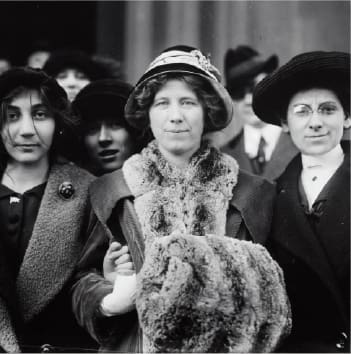Jump to section
METHODOLOGY
Introduction
A letter from Dana Denis-Smith
Our CEO

Dana Denis-Smith
CEO
Obelisk Support

Foreword
When I was eight years old, my schoolteacher went around the classroom asking pupils “what would you like to be when you grow up?”. Between children dreaming of becoming princesses and footballers, I was more mature in my answer: “I want to be a judge.“
‘”My parents always told me that the only limits on my potential are the limits I set for myself.”
Sandie Okoro
Senior Vice President and General Counsel
World Bank Group

Diversity statistics for women and Black, Asian, Minority Ethnic people in different areas of the UK legal profession.
Courts
Supreme Court:
- 2/12 Justices are women * 16%
- 0/12 are BAME* 0%
Courts
Court of Appeal & High Court:
- Women * 25%
- BAME* 3.5%
Law firms
# of Top 100 UK firms where the most senior leadership position are women and BAME
Managing Partner
- Women 20%
- BAME 1%
Senior Partner
- Women 27%
- BAME 4%
CEO
- Women 15%
- BAME 0%
In House
% of General Counsel at FTSE 100 Companies are:
- Women 35%
- BAME 5%
Bar
% of Queen’s Counsel are*:
- Women 17%
- BAME 9%
“I’m sometimes asked ‘When will there be enough ( women on the Supreme Court)?’
My answer is: ‘When there are nine.’
People are shocked. But there’d been nine men, and nobody’s ever raised a question about that.”
From the in-house community
Nilema Bhakta-Jones
Farillio
Chief Operating Officer
Caroline Brown
Aviva
Head of Legal Operations
Dr. Laura Janes
The Howard League
Legal Director
Caroline Halliday
Schroders PLC
Legal Counsel
Danette Joslyn-Gaul
Pearson
Legal Director
Rebekah Martin
AstraZeneca
Senior Vice President Reward and Inclusion
Ruth Murphy
BT
Legal Director, In-Life and Product
Deborah Stevens
Persimmons Homes
Company Solicitor
Carol Paton
Royal Bank of Scotland
Head of Litigation and Investigations
Sarah Thomas
Sage Group
EVP Deputy General Counsel
“I’ve always been really focused on my career, doing what I can and allowing other people’s sexism, racism and prejudice to be their problem and not mine.”
From private practice and the Bar
Oxana Balayan
Hogan Lovells
Partner, Global M&A Leadership Team, Head of Corporate Russia & CIS
Keily Blair
Orrick
Partner
Kirsty Brimelow QC
Doughty Street Chambers
Barrister
Anita Jewit
Irwin Mitchell
Partner
Alison Eddy
Irwin Mitchell
Managing Partner, London
Hilary Meredith
Hilary Meredith Solicitors
Chairman and Founder
Rachel Welch-Philips
Bird & Bird
Associate
Priscilla Osoba
Burges Salmon
Solicitor
Claire Wills
Freshfields
Partner, Corporate & M&A and Managing Partner, London
Rehana Popal
33 Bedford Row
Barrister
“As a profession, we simply cannot afford to waste a single dedicated and talented person, let alone an entire gender!”
The legal change-makers
Malvika Jaganmohan
St Ives Chambers
Barrister
Tessa Khan
Climate Litigation Network
Co-director
Karlia Lykourgou
Doughty Street Chambers
Barrister
Shanika Amarasekara MBE
British Business Bank
General Counsel and Company Secretary
Sabrina Mahtani
The Elders Foundation
Senior Policy Advisor
Rebecca Perlman
Herbert Smith Freehills
Senior Associate, Co-Chair of Impact Investment
Louise Whitfield
Liberty
Head of Legal Casework
Natasha Rattu
Karma Nirvana
Executive Director
Alexandra Wilson
Five St Andrew’s Hill
Barrister
Jennifer Swallow
LawTechUK
Director
Why does diversity in leadership matter?
Greater diversity and inclusion leads to:
Greater profitability
Research for the IMF3 found a positive association between gender diversity in senior teams at companies in Europe and financial performance, particularly in companies in knowledge-intensive sectors. Researchers at Deloitte found that teams which felt they had inclusive leaders were 17% more likely to report high performance and 20% more likely to feel they made high-quality decisions.(4)
In the legal industry, we have already seen clients taking the lead in demanding greater diversity from their supplier firms. For example, in April of this year, British communications company BT (5) announced that the firmwith the best D&I statistics across its partner, associate and trainee workforce would automatically have their place on their panel reconfirmed.
Superior risk management
Broadening the collective experience and perspective of a team and listening to everyone’s input leads to better decision-making and makes it less likely that a team or organisation will overlook potential risks due to “group-think”. Researchers have found that greater diversity of age, ethnic background and gender in boards leads to less risky financial decisions and correlates with improved performance.(6)
Increased innovation
Research by the Boston Consulting Group published in 2018 found that “Companies that reported above-average diversity on their management teams also reported innovation revenue that was 19 percentage points higher than that of companies with below-average leadership diversity—45% of total revenue versus just 26%.”(7) In a business environment which was changing rapidly due to economic and technological pressures even before the C-19 pandemic hit, rapid and successful innovation is critical to future organisational success.
Jump to section
Barriers that women face
The motherhood penalty
For women who want to have children and build their career, current structures in the legal profession put them at a disadvantage. The peak years for building skills, expertise and network coincide neatly with the years when women are most likely to have to meet the demands of homelife, yet 60% of women surveyed in 2019 felt that working part-time would impact on their career prospects.(8) For too many women, trying to balance both is exhausting, with the increased demands of the recent lockdown adding to the pressure: “I am the only female solicitor in a team of five. The other solicitors’ partners manage the home-schooling for their children, but I have only been able to manage my workload by working early morning and late evening.”, explained an in-house solicitor who replied to the First 100 Years project’s survey in May 2020.(9)


Bias in the workplace and society
Engrained expectations of women’s roles in society mean that the motherhood penalty is often applied even to those women who choose not to have children, as the perceived risk of them doing so is seen as enough to shut them out of opportunities.
Bias also leads to existing leaders recruiting in their own image, and given there are more men than women leaders, this reinforces the imbalance. In their work on the issue, the Law Society of England & Wales found that “perpetuated notions of women’s difference to their male counterparts results in their exclusion at all stages of a single career and ultimately limits advancement to positions of leadership.”(10)
Bias is particularly apparent when multiple characteristics intersect, for example being a BAME woman in law is even harder. “I think as a black woman, I over-compensate. I don’t want to be perceived as aggressive or in a certain way…it makes it difficult to be my true authentic self.”, one respondent told the Law Society’s roundtable research into the subject.(11)
Lack of role-models and visibility of women leaders
“You can’t be what you can’t see” …. Well, you can, and many women do, but it’s a lot harder. Google “Picture of legal leader” and you will see more men than women’s faces on the image search returned – and very little ethnic diversity. This lack of visibility serves to reconfirm existing biases and exacerbates “imposter syndrome”, where a person doubts their accomplishments, despite external evidence, and under-performs or leaves the profession altogether.
Strategies for change
Managing sponsorship
Organisations tend to be proud of coaching and mentoring schemes aimed at encouraging women to progress. However, research by nonprofit diversity experts Catalyst(12) has found that the most powerful support a potential female leader can receive is sponsorship from above. Most easily thought of as “the person who will put you forward when you are not in the room”, sponsors often bestow their patronage unconsciously. To avoid bias, senior leaders must begin to think consciously about how they are evaluating potential and who they are championing.
Re-routing career paths
Recent events have seen the myth that work has to happen in an office bust wide open. Now it’s time to challenge the convention that a career can only follow one pattern – a linear path from training to leadership that takes place between the ages of 21 and 50. Life expectancy for men and women is increasing; 50% of the children born today in rich countries are likely to reach the age of 100 or more.(13) Why then should we compress our career into the same years that we did when we could expect to live only until 70?

Too often people with a previous track record of achievement, followed by a career break or time spent in a part-time or more junior position, are viewed as less desirable candidates for senior roles. Priorities may shift as life transitions take place, potential does not. It is time to recognise that the qualities that make an effective leader may in fact be sharpened by time out of the professional workplace. The design of recruiting, retention and training practices that encourage more women, and men, to pursue flexible careers is essential to build greater diversity in leadership in the future.

Building inclusive work environments
As the coronavirus pandemic has shown that working from remotely isn’t a barrier to working effectively, and in fact may even lead to an increase in productivity, there is an opportunity to rebuild the physical environment in ways that put less emphasis on physical presence in an office. More importantly, legal organisations have an opportunity to reset the culture in their workplaces. Research by Thomson Reuters Acritas found that organisations that take strong action on behaviours that are contrary to their diversity & inclusion policies are more likely to retain and develop female staff.(14)
Re-imagining leadership
How do we describe a good leader? Traditionally traits such as dedication (as manifested by working long hours), technical expertise, a focus on achievement at all costs, the ability to “win” at negotiations, perceived charisma and confidence, the strength to command and to feel comfortable in the limelight have been celebrated and sought after. They are traits that many societies tend to be more comfortable with when they are manifested by men.
When women show these same qualities, studies have found that they are perceived as either less likeable or less trustworthy.(15) At the same time, researchers such as Daniel Goleman(17) have suggested that the most effective leaders are able to flex their style across a much wider range of styles and behaviours. Now is the time to rethink how the legal industry describes, nurtures and evaluates leaders, whilst consciously tackling deep seated bias.
Measuring diversity and setting targets
Setting targets based on detailed diversity data can help today’s legal leaders drive change for the future. To accelerate diversity across all dimensions in the legal profession, now is the time to be bold and take decisive action across all areas: positions on senior management teams, supplier contracts awarded, public appointments. It is heartening to see both the inhouse and private practice communities working together on such initiatives.

About the Next 100 Years
Find out more about the project at www.next100years.org.uk
Inspirational Women in Law Awards
Five years at a glance
2020
Barrister of the Year
Caoilfhionn Gallagher QC
Anneli Howard
Kama Melly QC – Winner
Sheryl Nwosu
Sarah Pinder
Solicitor of the Year
Amanda Adeola
Vanessa Challess
Tracey Dovaston – Winner
Attia Hussain
Farzana Naz
Champion of the Year
Natasha Harrison
Samina Iqbal – Winner
Sabeena Pirooz
David Stone
Suzanne White
Under-35 Lawyer of the Year
Chloe Birch
Netanya Clixby
Anne Collins
Sangeetha Iengar
Karlia Lykourgou – Winner
In-House Lawyer of the Year
Shanika Amarasekara MBE
Clare Belcher
Anne Bodley, Lexlead – Winner
Amy Marren
Angharad Price
Lifetime Achievement Award
Cherie Blair QC
2019
Barrister of the Year
Elaine Banton
Poonam Bhari
Kate Brunner QC
Professor Jo Delahunty QC
Rehana Popal – Winner
Professor Suzanne Rab
Solicitor of the Year
Hermione Allen
Danielle Ayres
Catherine Hart
Dr Laura Janes – Winner
Sarah Khan-Bashir MBE
Kelly Thomson
Champion of the Year
Dr Kim Barker
Alison Eddy – Winner
Jemima Lovatt
Sun-Hee Park
Rachel Pears
Eduardo Reyes
Under-35 Lawyer of the Year
Cynthia Jakes
Stephanie Kay
Coralie McKeivor
Coleen Mensa
Ingrid Munyaneza
Priscilla Osoba – Winner
In-House Lawyer of the Year
Penny Caven
Elaine Hutton
Catherine Palmer – Winner
Ruth Pearson
Prini Pithouse
Angharad Price
Lifetime Achievement Award
Baroness Helena Kennedy QC
2018
Barrister of the Year
Kirsty Brimelow QC – Winner
Martha Cover
Caoilfhionn Gallagher QC
Angela Rafferty QC
Brie Stevens-Hoare QC
Solicitor of the Year
Katja Butler
Hilary Meredith – Winner
Brandusa Tataru-Marinescu
Belinda Lester
Natasha Harrison
Champion of the Year
Ray Berg
Nilema Bhakta-Jones – Winner
Dan Fitz
Charlotte Wannedeya
Mary-Ann Wright
Under-35 Lawyer of the Year
Frances Hull
Zeena Luchowa
Katherine McAssey
Annsley MerelleWard
Rachel Welch-Phillips – Winner
In-House Lawyer of the Year
Maaike de Bie
Ruth Murphy – Winner
Jolie Norris
Anna Suchopar
Lifetime Achievement Award
Baroness Hale
2017
Anita Jewitt – Winner
Harriet Johnson
Suzanne Keenan
Suzanne Szczetnikowicz
Jenny Wilde
2016
Keily Blair – Winner
Annie Flower
Gemma Pesce
Claire Sng
Georgina Wolfe
References
2. PWC, “Female Talent Report”, March 2017
3. Christiansen, L et al “Gender Diversity in Senior Positions and Firm Performance: Evidence from Europe” IMF Working Paper No.16/50, March 2016
4. Bourke, J and Espedido, A, “Why inclusive leaders are good for organisations and how to become one”, Harvard Business Review, March 2019
5. The Lawyer website: www.thelawyer.com/btthrows-down-gauntlet-to-panel-our-mostdiverse-firm-gets-rehired-automatically ,April 2020
6. Bernile, G, “Board Diversity, Firm Risk and Corporate Policies”, Journal of Financial Economics, 2018
7. Lorenzo, R et al “How Diverse Leadership Teams Boost Innovation”, BCG.com, March 2018
8. Survey carried out by First 100 Years project, October 2019
10. Law Society England & Wales, “Influencing for Impact:the need for gender equality in the legal profession”, March 2019
11. Law Society England & Wales, “Influencing for Impact:the need for gender equality in the legal profession”, March 2019
12. Foust-Cummings, Heather et al, “Sponsoring women to success”, Catalyst, 2011
13. Gratton, L and Scott, A, “The 100 Year Life”, Bloomsbury 2018
14. Thomson Reuters/Acritas research, presented at TWILL event December 2019
15. Agarwal, P, “Not very likeable:Here is how bias is affecting women leaders”, Forbes, October 2018
16. Goleman, Daniel, “Working with Emotional Intelligence”, Bloomsbury, 1996
Download the full report
It may be subject to change or update without notice. You should not act upon the information contained in this publication
without obtaining specific professional advice. No representation, assurance or warranty (express or implied) is given as to the
accuracy or completeness of the information or data contained in this publication, and, to the extent permitted by law, Obelisk
Legal Support Solutions Limited, its members, employees and agents do not accept or assume any liability, responsibility or duty
of care for any consequences of you or anyone else acting, or refraining to act in reliance on the information contained in this
publication or for any decision based on it.

